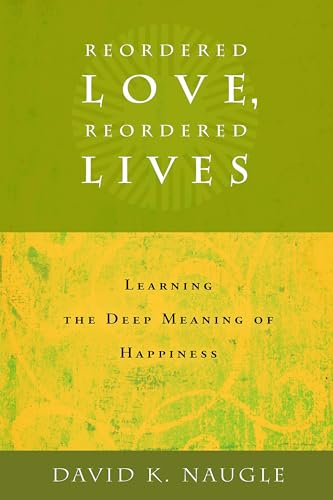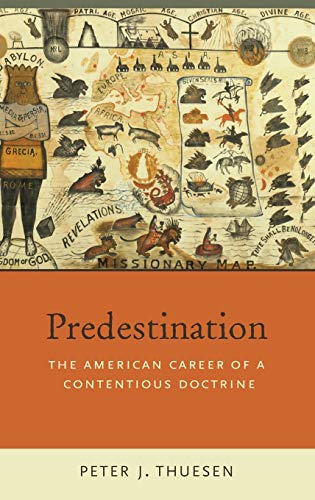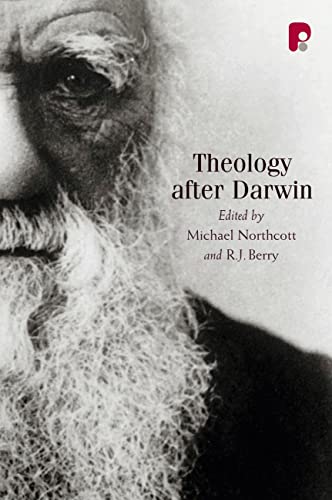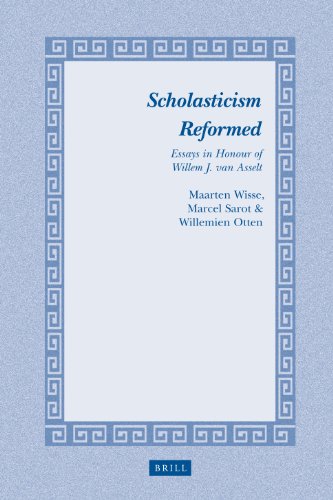A Common Word: Muslims and Christians on Loving God and Neighbor
Written by Miroslav Volf, Ghazi bin Muhammad, and Melissa Yarrington, eds. Reviewed By Georges Chawkat MoucarryThis book is about an open letter addressed in October 2007 by 138 Muslim leaders and scholars to the Pope and other church leaders. It is a consensual Islamic response to Christian perceptions of Islam in recent years (especially since ‘9/11’), in particular to the characterisation of Islam as a violent religion by the Pope when, in his September 2006 Regensburg lecture, he quoted the Byzantine Emperor Manual II Paleologos. His Royal Highness Prince Ghazi bin Muhammad bin Talal of Jordan is the principal drafter of the letter, whose title comes from Sura 3 (The Household of ‘Imran) verse 64:
Say: O People of the Scripture! Come to a common word between us and you: that we shall worship none but God, and that we shall ascribe no partner unto Him, and that none of us shall take others for lords beside God. And if they turn away, then say: Bear witness that we are they who have surrendered (unto Him).
This open letter represents a landmark initiative. For the first time a representative and highly influential Muslim group has issued a solemn invitation to Christian leaders to join them in order to work together for global peace, not just for peaceful relations between the two largest monotheistic communities in the world. However, despite the significance of this document, as a Cambridge Muslim scholar pointed out to me in a private conversation, it does not represent a fatwa or a binding legal ruling.
Many Christian leaders, organisations, and academic institutions responded enthusiastically to this initiative. One of the first and most significant responses was given in November 2007 by the Yale Center for Faith and Culture (headed by M. Volf), which set up in July 2008 a conference at which a number of Christian and Muslim speakers discussed various aspects of this initiative. Apart from the ‘Common Word’ document and the ‘Yale response,’ the book reproduces the papers delivered at this conference, and includes a ‘Frequently Asked Questions’ section about these two texts. (The full text of the ‘Common Word’ is on the official website of this initiative: www.acommonword.com. The ‘Yale response’ is also available here along with many other responses: www.acommonword.com/lib/downloads/fullpageadboldl8.pdf.)
The Muslim signatories believe, ‘Islam and Christianity share, at their core, the twin “golden” commandments of the paramount importance of loving God and loving one’s neighbor’ (p. 3). No Christian will be surprised by this emphasis on the twofold greatest command in Christian doctrine. What is unprecedented is that, first, Muslim scholars have summed up Islamic teaching in the same way and, second, they backed up their claim by quoting extensively from both the OT and NT as well as from the Qur’an and the Hadith (Prophetic Tradition).
Volf highlights the great potential for this initiative to transform Christian-Muslim relationships. If Christians and Muslims ‘commit themselves to love God and neighbour, the “Common Word” initiative will open up a new future for Muslims, Christians, and Jews—a future in which many swords will be turned into plowshares and countless clashes will be replaced by peaceful coexistence’ (p. 27). The vast majority of Christians, especially in the West, responded positively to this initiative. However, Muslims too need to be engaged, and it is the responsibility of Muslim leaders to invite their community members to open a new chapter in their relationships with Christians, including those who live in Muslim-majority countries.
The Yale response is so enthralled by the Islamic letter that it goes further than what it actually says about God in particular. It is indeed remarkable that Reza Shah-Kazemi entitles his paper ‘God, “The Loving’ ” (pp. 88–109) and that Prince Ghazi translates the Divine Names Al-Raẖman as ‘The Creator-through-Love’ and Al-Raẖman as ‘The Savior through Mercy’ (p. 11). However, the letter does not go as far as to describe God ‘as being Love’ as it is alleged in the Yale response (p. 54). We need to be careful not to read things Christian into an Islamic document. H. A. al-Jibri asserts, ‘we cannot say according to Muslim belief that God is love, because love is an attribute’ (p. 84). If love is a divine attribute, one wonders why none of the traditional lists that enumerate ‘God’s 99 Most Beautiful Names’ includes Al-Muhibb, ‘The Loving’, though Al-Wadud, ‘The Lovingkind’, is among them—there are four such lists, two of them are found in the Hadith compilations (Ibn Majah, du’a’ [Invocation] 10; Tirmidhi, da’awat [Invocations] 87). See D. Gimaret, Les Noms Divins en Islam(Paris: Le Cerf, 1988), 51–68.
It is worth noting that the ‘Common Word’ quotes Sura 2 (The Heifer) verse 256 (‘Let there be no compulsion in religion’) and presents justice and freedom of religion as ‘a crucial part’ of loving one’s neighbour (p. 47). Traditionally this verse has been interpreted in the sense that Jews and Christians should not be forced to convert to Islam, not that Muslims have the right to convert to a religion of their choice. (The Universal Islamic Declaration of Human Rights asserts the right to freedom of conscience and worship [art. 13], but significantly, unlike the UN Universal Declaration of Human Rights, it does not specify that this right includes the freedom for a person to change his or her religion.) One would have expected Christians at the Yale conference to raise the issue of the Islamic law on apostasy (which prescribes the death penalty) and its compatibility with the command of loving our neighbour, in this case a Muslim neighbour who converts to another faith. (To be fair this issue is alluded to in a footnote by Martin Accad, an Arab Christian from Lebanon [pp. 160–61].)
The open letter quotes the twofold greatest commands according to Mark’s Gospel, which includes the Shema Israel (12:28–34). At the same time the letter’s main author suggests in the book’s introductory chapter that the Christian doctrine about the Holy Trinity is alien to Jesus’ teaching and to the whole Bible (p. 9). The question arises whether the letter considers the Christian community to be nevertheless a genuinely monotheistic community. If it stated more clearly that this is the case, it would have demonstrated more convincingly its intention ‘to focus on popular rapprochement and mutual understanding between Christians and Muslims’ (p. 11). So far Muslim exegetes have understood the above quoted Qur’anic text (3:64) as an invitation to Christians to sign up with Muslims to a common statement about God’s oneness that would require them to renounce their beliefs in God’s Trinity and Christ’s divinity (e.g., see Razi’s exegesis on this text in his Great Commentary [vol. 8]). If the letter plainly indicates a fresh Islamic interpretation of this text, it would undoubtedly achieve a considerable step in Christian-Muslim theological rapprochement.
Finally, the ‘Common Word’ makes many biblical references and quotations to build its case. Many Muslim theologians believe in what is known as taẖrif lafẕi or ‘falsification’ of the Bible, a concept which means that the biblical text has been substantively changed and is therefore no longer trustworthy. Does the letter imply that the Bible is still God’s reliable Word? Otherwise its whole argument would be seriously flawed. If it does, this initiative will in the long run transform Christian-Muslim dialogue and make it more fruitful than it has ever been.
Georges Chawkat Moucarry
Georges Chawkat Moucarry, who grew up in Syria and then studied Christian and Islamic theology in France, is now on the IFES staff in France.
Other Articles in this Issue
Most of us, I suspect, develop fairly standard ways, one might even say repetitive ways, to appeal to the motivations of our hearers when we preach the gospel...
How to Write—and How Not to Write—A Review: An Appreciative Response to Reviews of Ancient Near Eastern Themes in Biblical Theology by Dempster and Edgar
by Jeffrey J. NiehausI want to thank Themelios for the unusual opportunity to interact with two reviewers of my book Ancient Near Eastern Themes in Biblical Theology...
Parallels, Real or Imagined? A Review Article of Jeffrey J. Niehaus, Ancient Near Eastern Themes in Biblical Theology
by William EdgarWhen I came to Westminster Theological Seminary in Philadelphia as a young student in the 1960s, two things struck me...
Why Evangelicals Should Ignore Brian McLaren: How the New Testament Requires Evangelicals to Render a Judgment on the Moral Status of Homosexuality
by Denny BurkIn 2006 on Christianity Today’s leadership blog, Pastor Brian McLaren urged evangelical leaders to find a “Pastoral Response” to their parishioners on the issue of homosexuality...
A Member of the Family or a Stranger? A Review Article of Jeffrey J. Niehaus, Ancient Near Eastern
by Stephen DempsterWe cannot overstate how important knowing the context is for understanding the significance of any communication, whether that is a simple word, sentence, paragraph, larger text, sign, photograph, or cultural cue...







